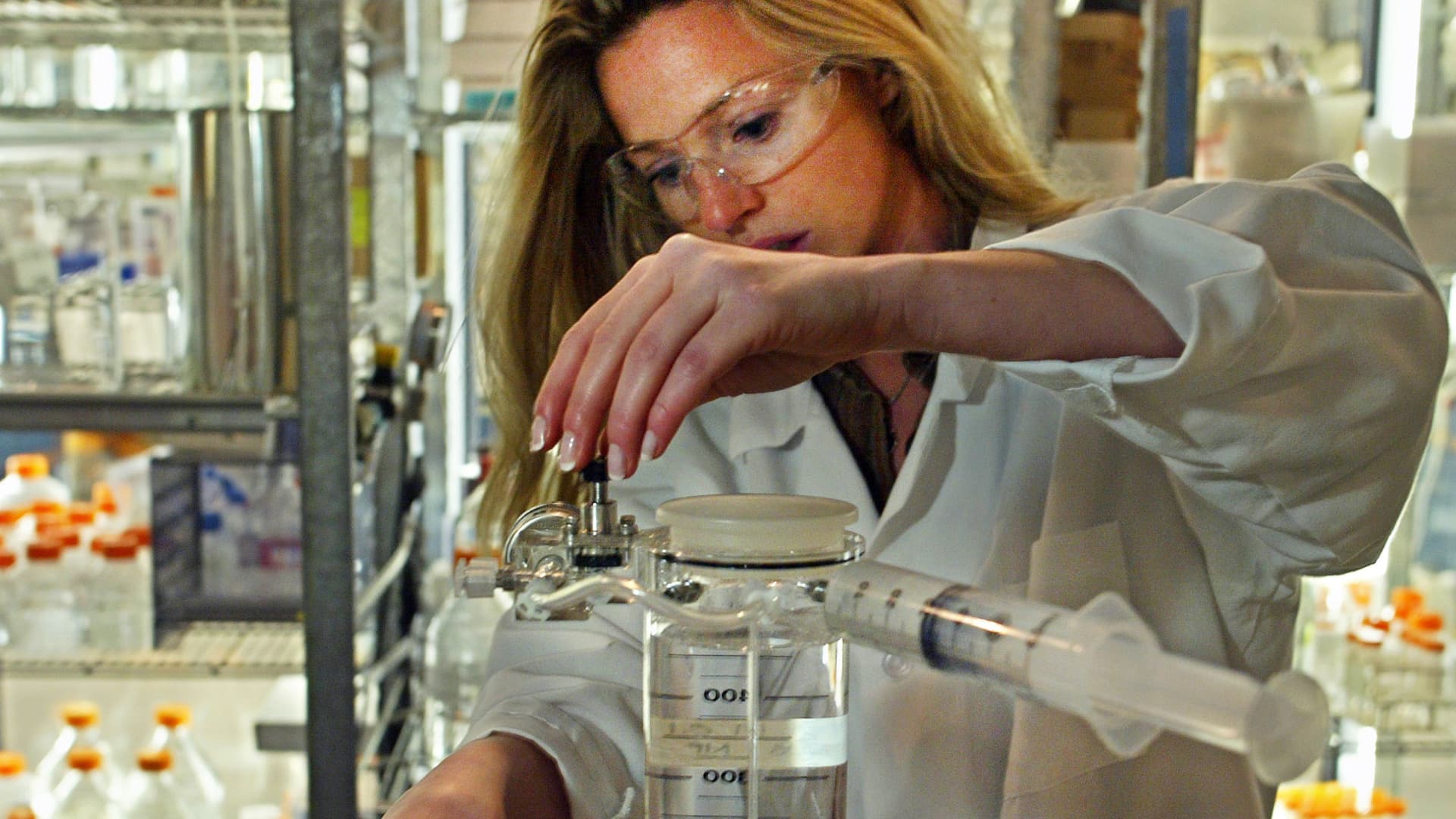Investors are underappreciating the effect generative artificial intelligence will have on biotech stocks, according to Jefferies. Biotech stocks have had a challenging couple of years, falling into a correction after an initial surge at the onset of the Covid-19 pandemic, as they navigated a higher interest rate environment. More recently, tariffs and staffing reductions at the U.S. Department of Health and Human Services have also hit the sector. The SPDR S & P Biotech ETF (XBI) is down more than 11% in 2025, while the S & P 500 has eked out a slight gain. XBI YTD mountain XBI Nevertheless, the sector is set to get a boost from the adoption of generative AI in drug discovery, which Michael Yee, senior biotech analyst at Jefferies, said will save companies years and billions of dollars in getting new drugs to market. “We know that biotech is a billion dollars to find a drug, up to 10 years to get a drug to market, and 90% of drugs fail,” Yee told CNBC’s David Faber on “Squawk on the Street” on Wednesday. “So, we think that based on analysis and some of the technologies these companies are doing, you can cut the drug time by years, and cut the probabilities significantly in half to get drugs to market, and that can save billions of dollars and increase the odds of success and return on investment for companies and investors.” “It is very early stage, and we’re out there saying, five years from now, we think we’ll see tremendous progress in drugs that are in the clinic from test tubes today that were basically done using generative AI,” Yee continued. “We can cut a 10-year process. We’d be down to seven or eight years.” There are some near-term regulatory challenges the sector is facing, but Yee said he expects that any downside from negative headlines is already priced into the stocks. “We’re actually optimistic for the rest of the year,” he said. Amgen , one of the world’s largest biotech companies, is one firm integrating generative AI to analyze human datasets for its research. The buy-rated stock is up 7% this year, according to the CNBC analyst consensus tool. Software company Schrodinger is set to benefit from increased research and development spending, using machine learning in drug discovery programs. The stock is up 11% this year. Illumina , which develops systems for genetic variation analysis, and Danaher, a life sciences and diagnostics company, are two other companies to benefit. The stocks are down 38% and 17% this year, respectively.





